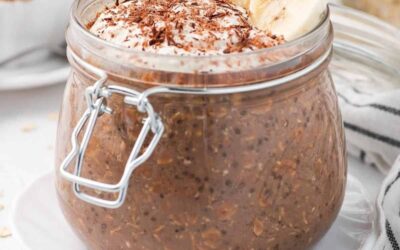Sleep challenges are common for people living with Parkinson’s Disease, often making symptoms feel even harder to manage. But what you eat can play a surprisingly powerful role in supporting restful, restorative sleep. In this article, we explore how diet affects melatonin production, magnesium balance, and digestive comfort – all crucial factors for better sleep in Parkinson’s Disease.
Learn how to personalise your approach by visiting my nutrition services or reviewing my plans and pricing.

How Diet Affects Sleep in Parkinson’s Disease
Parkinson’s Disease impacts many systems in the body, including those that regulate the sleep-wake cycle. Certain foods can support the production of melatonin (the hormone that helps control sleep), provide magnesium (important for muscle relaxation), and keep digestion smooth so that nighttime discomfort doesn’t interrupt rest.
To learn more about my approach to dietary strategies, visit my about page.

Foods to Support Melatonin Production
- Cherries and Bananas
These fruits are natural sources of melatonin and can help gently encourage sleepiness when included as part of your evening meal or snack.
- Oats and Whole Grains
These provide tryptophan, an amino acid involved in melatonin production, and are also excellent sources of fibre (spelled using British English), which supports gut health.

Magnesium-Rich Foods for Relaxation
- Leafy Greens
Spinach, kale, and Swiss chard are packed with magnesium, a mineral that plays a key role in muscle relaxation and nerve function.
- Avocado and Nuts
Adding a handful of almonds or a few slices of avocado to meals provides both magnesium and healthy fats, which help calm the nervous system.

Foods to Avoid Before Bed
- Heavy, Fatty Meals
Large or high-fat dinners can slow digestion and lead to discomfort or acid reflux, which can disturb sleep.
- Caffeine and Alcohol
Both substances can disrupt sleep patterns and should be limited in the hours before bedtime.

Tips for Building a Sleep-Supportive Diet
- Focus on balanced, whole-food meals that include vegetables, whole grains, and lean proteins.
- Eat at consistent times each day to reinforce your body’s natural rhythms.
- Stay hydrated, but reduce fluids close to bedtime to minimise nighttime awakenings.
For more dietary strategies and meal planning advice, explore my blog section.

If you are managing Parkinson’s Disease and looking to improve your sleep through dietary changes, I am here to help. Together, we can create a personalised plan that supports both your nutrition and your sleep health.




